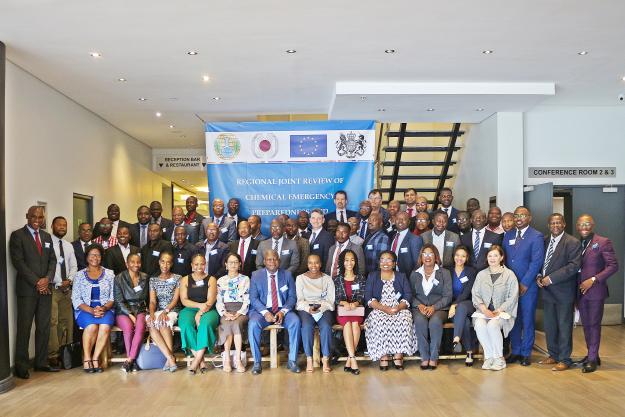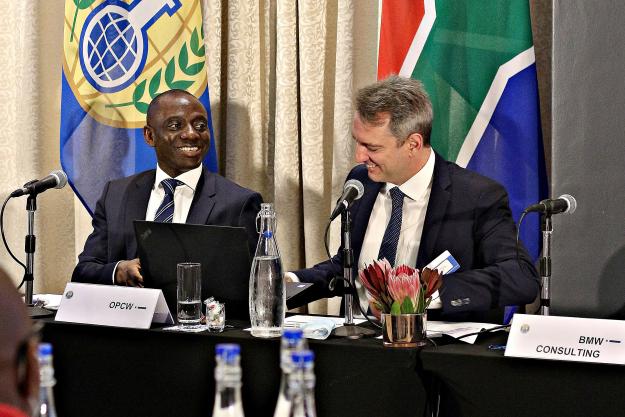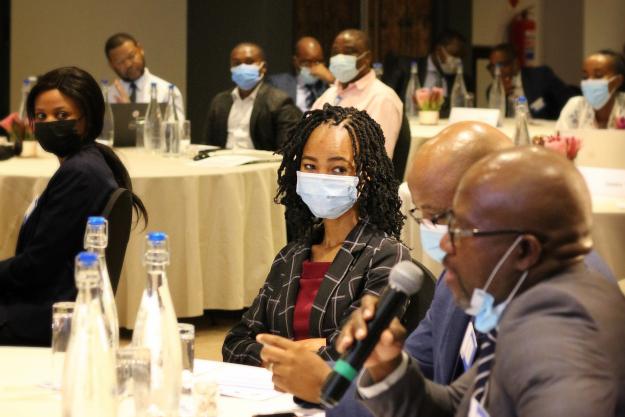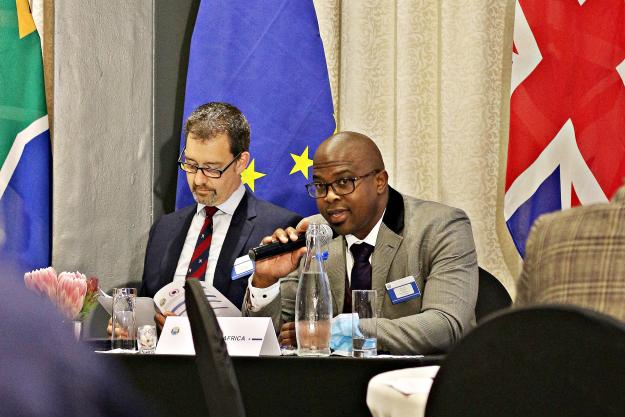
THE HAGUE, Netherlands—4 April 2022—The Organisation for the Prohibition of Chemical Weapons (OPCW) is implementing a regional joint review of chemical emergency preparedness and response capabilities for OPCW States Parties from the South African Development Community (SADC). Financed by the Government of the United Kingdom of Great Britain and Northern Ireland and the European Union, the process is designed to improve the implementation of Article X of the Chemical Weapons Convention (Assistance and Protection Against Chemical Weapons) at sub-regional and national levels.
Participating Member States first used the new OPCW Online Self-Assessment Tool (OSAT) to assess the entire life cycle of hazardous chemicals from a risk perspective. This tool supports countries in gathering information on existing response capacities and identifying necessary improvement measures, including assistance needs.
The OPCW organised a subsequent in-person meeting to review and discuss information gathered through the self-assessment from 28 – 30 March in South Africa. Participants worked with Secretariat experts to take stock of chemical risks and gaps in chemical emergency preparedness and response capabilities.

Opening the meeting, the OSAT Programme Manager from the OPCW Technical Secretariat stressed: “The first inputs received from 13 SADC countries show us that there is a high level of interest in shoring-up national protective programmes. We also see a need and potential in strengthening regional co-operation on these issues in southern Africa, as well as opportunities for the Secretariat, and broader CWC community to provide targeted assistance to SADC Member States”.
By using OSAT to identify domestic chemical risks and to assess gaps in the existing protection plans, Member States will better informed and able articulate their chemical emergency response needs. They will be able to define chemical emergency roles and responsibilities for national response agencies and to ensure that these are equipped and ready when needed.
The meeting was attended by a total of 82 participants — 52 in-person and 30 online — representing national institutions responsible for chemical emergencies from 13 OPCW Member States: Angola, Botswana, Democratic Republic of the Congo, Lesotho, Madagascar, Malawi, Mauritius, Mozambique, Namibia, South Africa, United Republic of Tanzania, Zambia, and Zimbabwe.

Background
The OPCW’s International Cooperation and Assistance Division assists Member States in realising the protections and benefits of the Chemical Weapons Convention at the domestic level. Since 2007, it has managed the Programme to Strengthen Cooperation with Africa on the Chemical Weapons Convention — more commonly known as the Africa Programme. Now in its 5th phase, Africa Programme responds to the particular needs of African Member States in their endeavour to comprehensively and effectively implement the Chemical Weapons Convention.
OPCW’s Assistance and Protection Branch contributes to the efforts of the Africa Programme with targeted projects falling under the remit of Article X, which focuses on, among other things, assisting States Parties in strengthening national programmes for the development and improvement of a protective capacity against chemical weapons.
As the implementing body for the Chemical Weapons Convention, the OPCW, with its 193 Member States, oversees the global endeavour to permanently eliminate chemical weapons. Since the Convention’s entry into force in 1997, it is the most successful disarmament treaty eliminating an entire class of weapons of mass destruction.
Over 99% of all declared chemical weapon stockpiles have been destroyed under OPCW verification. For its extensive efforts in eliminating chemical weapons, the OPCW received the 2013 Nobel Peace Prize.

